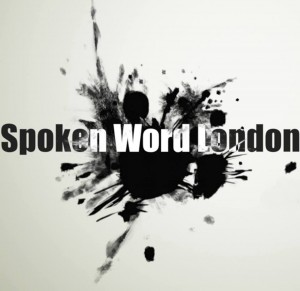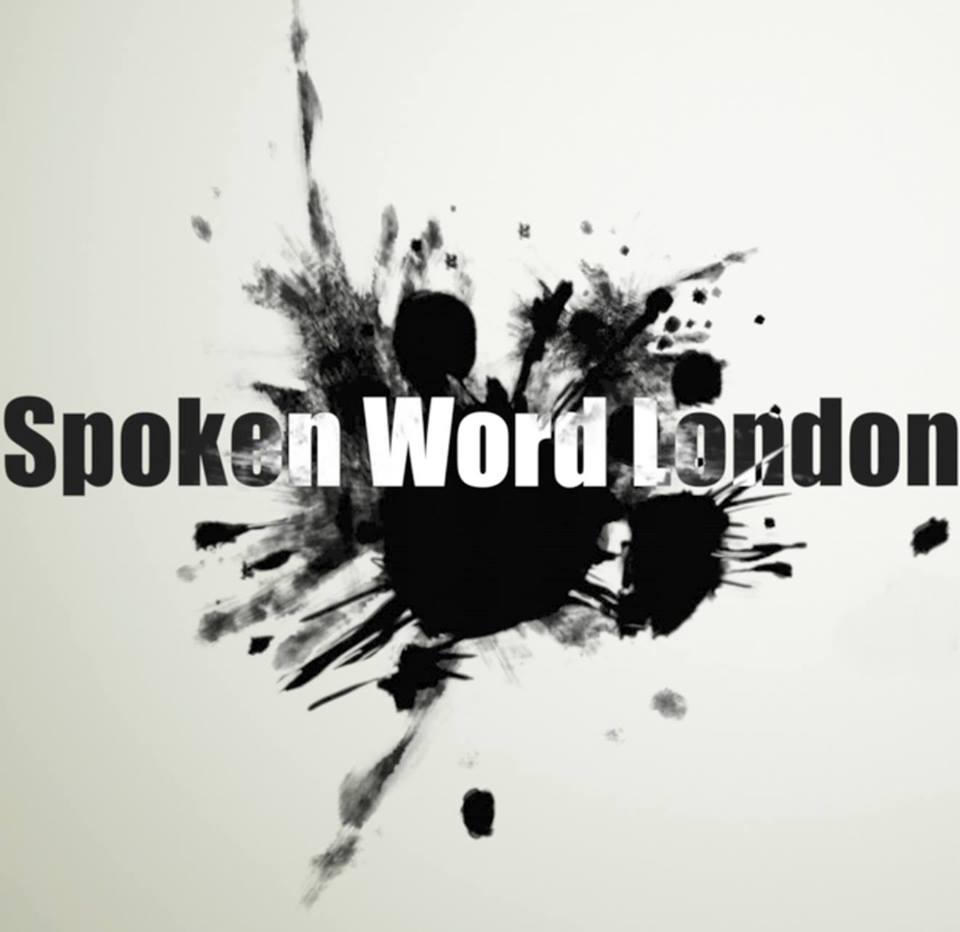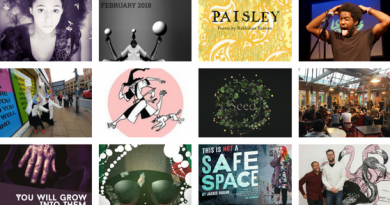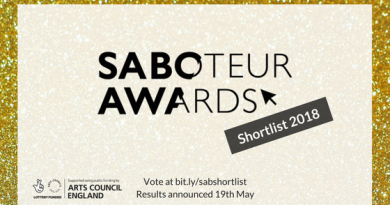Spoken Word London – 27/01/16

– reviewed by Betsy Porritt –
Spoken Word London – a truly diverse evening…
There’s something exciting about the nights hosted by Spoken Word London. They are just the same format as so many others, twenty lots of five-minute slots filled on a first come first served basis, a reserve list adhering to the same strict democratic order, a mixed bag of varying talents, some exhilarating, others merely dull and there is a large pool of long time regulars trying out new stuff or re-speaking their favourite works. And yes, it’s in another grotty Dalston basement, (why ARE they so self-consciously shit?) and everyone is supportive and everyone gets a clap, but there is something else going on too. It is one of the more diverse evenings dedicated to the spoken word. Not just in the crowd speaking and attending, but in the variety of literary efforts being showcased. Audience led improv poetry, call and response slam raps, witty one liners, brilliantly surreal comedy ‘bits’, political stuff, personal stuff, a scattering of truly excellent spoken word pieces and a recitation if Benito Mussolini’s speech to the Italian Socialist party in 1914. So, yeah, a real variety night, a true celebration of the spoken word.
On lists…
List poems are big at spoken word events. They are enjoyable to write, pleasing to hear and memorable, in the way compound images gain momentum and meaning. However, this form can also be somewhat surface and empty, an exercise in style that gets audible reactions from the crowd but, when examined further, doesn’t say much beyond that first couple of images. It’s a difficult and subtle difference, and there is huge skill in choosing which darlings to kill. But editing is where the real talent in all writing lies. A poem read this evening that tackled the thorny triad of weight loss, social ideals, and the reality of a broken heart by listing a range of terms for fatness or skinniness, somehow lacked ‘meat’. Another poem, about the dehumanisation of a woman through her neglectful relationship, listed the various ways of figuring oneself as a doormat. And, while the linguistic skills of this writer were commendable, we had reached the conclusion way before the final line was spoken. Hey, that’s not so bad, half the fun is in the journey, but these are important things to be writing about and a little attention to what the poem is actually saying could make a fine work great. As Tyrone Lewis said himself, his own list poem lamenting, mocking and turning right on its head excess and cliché; “there’s too many lines in this poem”.
On love…
The same is true for love poems, date poems and poems that just want to talk about sex. If I hear the word caress one more time I think I might just begin slow clapping and never stop. However, the power of a love poem to transcend its corporeal base and touch on something universal is a love poem worth hearing. This was certainly true for both Rebecca Cooney’s poem The Three Day Beard, and JP O’Malley’s SE64XP.
Cooney’s moving use of fear, anger and physicality was both refreshing and commendable. In the poem, she writes of the fears ‘her’ Indian-born boyfriend has in the current political climate with his beard and “Skin the colour of a bomb in a backpack”. Threats come from political rhetoric and loose-lipped racists on a bus until the only refuge she finds is in his beard, a physical certainty and symbol they can both fight for. The fear that pervades the work comes from an inability to stand up and speak out, from being divided and conquered, the worry that divorcing the individual from their culture of origin takes away the human and consequently the human rights. “Their words are making immigrants/ Of us all”, she writes, cleverly making ‘them’ a different kind of patriot whose history she rejects.
O’Malley’s meditation on the scrappy ends of a relationship, familial living and familial history was by turns deeply erotic, tender and banal. “I crave the quotidian and mundane with a ravenous hunger that cannot be satisfied” he writes in this poem that strolls through the landscapes of South London and the undulations of a shared sexual relationship. His way of juxtaposing fierce hunger and a tired comfort is actually more unsettling and disturbing than a pornographic fantasy. The starkness of the line; “holding your black-laced-panties/ in my right fist, while I enter you from behind for what feels like the millionth time” is an image of a deep, un-fillable pleasure. This is real fucking in all its glorious banality. And it’s beyond that too. A past world glimpsed through memory, drunken, misremembered and misused. It is an exploration of the ruins of an imagined future that can only ever be our relationship to a wider, global history; “Shared histories are razed to the ground in the name of collectivization and modernity.”
On ruin…
The fight against ruins ran through the poem I am not a Soldier by Abe Gibson. It was a pleasure to get to hear Gibson speak this evening. His musical lilt and low tones made the damp little basement totally still and focussed. That is a true performers skill and one everyone wanting to speak should take a tip from. The poem spoke about the transformation of the individual into an army, the fear of fear and what happens when we stop speaking, thinking and questioning; “I am not a soldier/ Who is born a soldier!/ Who is born an enemy”. Alongside this was Some Rain, where his central figure is both muse and devotee singing out her “Broken hearted hallelujahs”, a quiet portrait of damaged hopes.
What makes a spoken word night special…
That there is space for such skill and sincerity was a great canary for London spoken word nights in general and there were many other moments of joy that I have missed off here. SWL is special because it opens its floor to anyone and draws out voices who address the current, the political and the social: from Thomas Owoo’s witty and beautifully crafted Sociology lesson on Marxism, to the performer of Mussolini’s speech, complete with tin helmet, so sincere in delivery that the audience became silent and uncomfortable, questioning their early reactions to laugh. I came away comforted by the knowledge that at this open mic night, freedom of speech and the imperative to speak go word in lyrical word.
The next Spoken Word London will be at Vogue Fabrics on Thursday 30 March. More info here.





